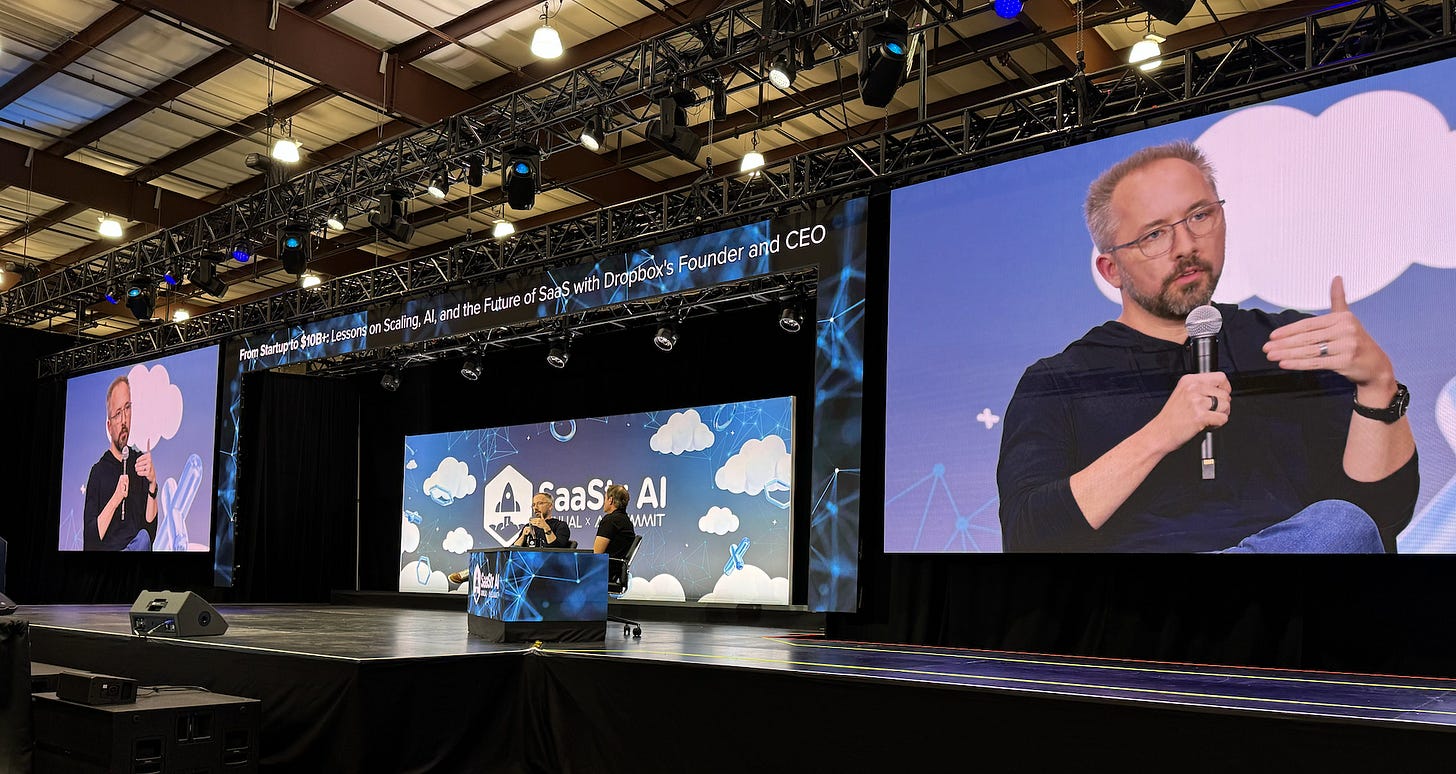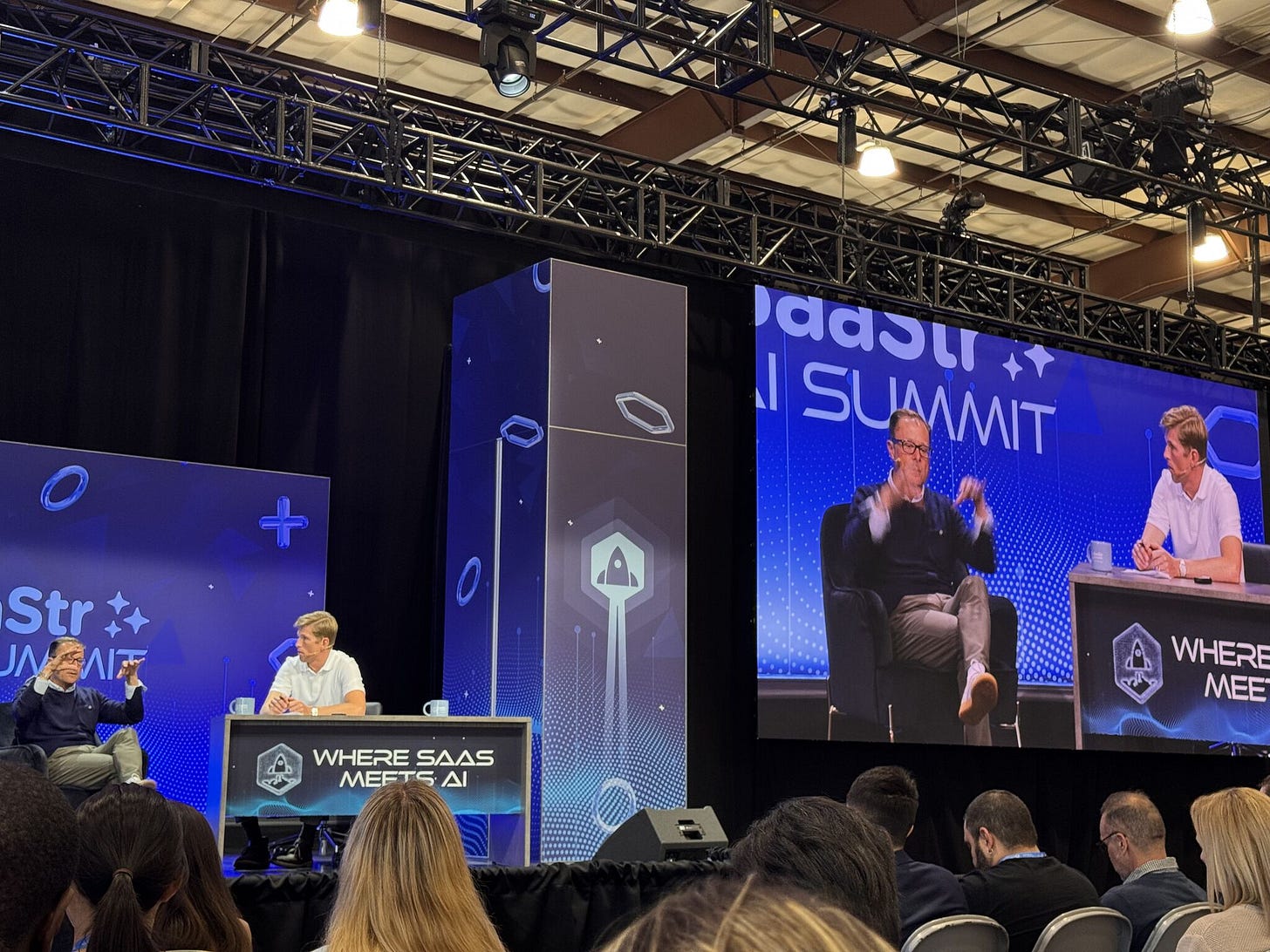You’ll probably get fired for buying IBM
Lessons for Customer Success Leaders: Embrace Change or Be Left Behind
My friend Marty’s company, Pylon, is eating Zendesk’s lunch. They’re a scrappy startup, just two years old, and they’re winning every deal against Zendesk. When I caught up with Marty at SaaStr today, he joked, “The only rebuttal Zendesk has is that Pylon is a Series A company”—ironically, that’s just one of many reasons they’re crushing Zendesk. Enterprises are increasingly turning to best-in-breed startups to educate them about the future of their business.
It’s a fact: AI is advancing at an unprecedented pace—LLMs are doubling in capability every six months, while NVIDIA’s latest AI chips deliver up to 30× performance gains in inference. This relentless cycle of smarter models and faster hardware is driving the fastest technological evolution in history.
Across my portfolio, I’m seeing enterprises looking to seed-stage companies to inform their AI strategies. Amanda Kahlow, CEO of 1Mind, texts me at least once a week to share news of another enterprise deal she’s landed. Cascade.ai is securing six-figure contracts with some of the largest medical companies in the country, and Axle Mobility already has enterprise customers that took us years to land at Motive!
The pattern is clear: if you’re not on the cusp of AI, you’re probably going to get fired soon for sticking to the same old big-name vendors. You need to be reinventing your business. The old saying goes—you never got fired for buying IBM, but in this innovation cycle, the opposite is true!
Drew Houston’s Bold Vision for the AI Era
One of the standout moments from Day 1 at SaaStr was when Jason Lemkin took the stage for the end-of-day session with Dropbox founder Drew Houston. Houston spoke candidly about how Dropbox is relaunching itself with AI, recognizing that every tech product eventually hits an S-curve—an inevitable plateau where growth stalls as the market matures. For Dropbox, that moment came as the file-sync market became increasingly commoditized, pushing the company to reinvent itself.
The real challenge for Dropbox is overcoming its legacy perception. In an era where agile startups are setting the pace, established companies like Dropbox must move quickly or risk losing relevance. Houston acknowledged this head-on, emphasizing the need to refound the company by going back to first principles and asking, “If we started Dropbox today, what would it look like?”
The reality is, this takes a special kind of leader—someone with the vision, grit, and willingness to challenge the status quo. Honestly, there are probably only a handful of non-founding CEOs truly up for this challenge. It requires not just maintaining momentum but fundamentally reimagining the company’s future, while also rallying a team around a bold new vision. Most leaders maintain the status quo.
During my session earlier in the day with Canva CCO Rob Giglio, he highlighted the same sense of humility that drives innovation at Canva. Despite being an AI market leader in their own domain, Canva actively seeks out early-stage thinkers to help shape their go-to-market AI transformation—across operational functions from sales and marketing to Customer Success.
Takeaway for a Customer Success Leader:
As a Customer Success leader, the key takeaway from Day 1 of SaaStr is clear: Adaptability and forward-thinking are no longer optional—they’re essential for survival.
Customer Success leaders must embrace this shift by proactively exploring AI-driven tools and fostering a culture of innovation within their teams. It’s not just about maintaining existing processes but reimagining how you deliver value in a rapidly evolving environment. Just as Dropbox is redefining itself to stay relevant, CS leaders must be willing to challenge legacy practices, rethink customer engagement strategies, and leverage AI to deliver better, faster, and more insightful support. Ask yourself — “If we started our Customer Success team today, what would it look like?”
In this new landscape, staying complacent is not an option. The most successful CS leaders will be those who continuously reinvent how they serve their customers—leveraging AI, embracing change, and staying agile in the face of industry disruption.







this was a great read!